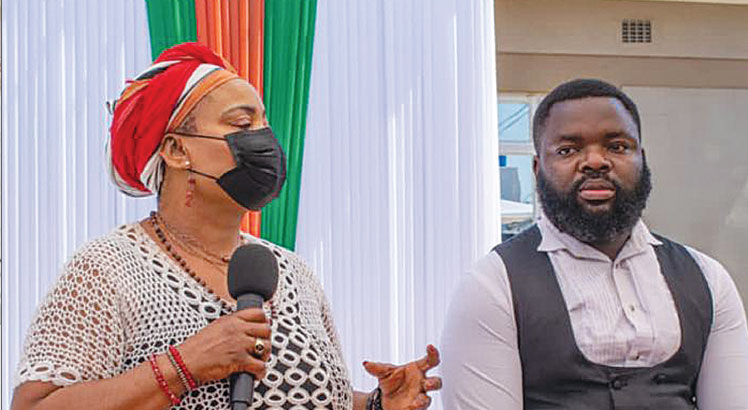Creating hope for children with disabilities
Every child has a right as enshrined in the country’s Constitution as well as other international conventions.
These rights include access to healthcare, education, family care and protection.
The Disability Act promotes the rights of persons with disabilities, including children.
These rights are also outlined in international conventions such as UN Convention on Vocational Rehabilitation and Employment of Persons with Disabilities which Malawi is a signatory.

The convention prohibits discrimination on the basis of disability in all forms of services such as health and employment.
According to the 2018 Malawi Population and Housing Census, the prevalence of disability among children aged between zero and17 in the country, is six percent. However, this does not include children with albinism and epilepsy.
However, there were differences among the districts, with Rumphi having the highest prevalence at 10 percent followed by Chitipa, Dedza and Mzimba at eight percent, followed by Nkhata Bay and Mwanza at seven percent.
A United Nations Children’s Fund (Unicef) 2020 situation analysis showed that the major causes of disability were diseases/illnesses at 49 percent and birth injuries or congenital at 40 percent with no differences between boys and girls.
An earlier study found that insufficient initiatives to effectively prevent and treat malaria and general lack of attention, especially among community members, contributes to long-term disability. Mostly, the cause of these disabilities starts from either birth or before.
For example, celebral palsy, which is an abnormal brain development or damage to the developing brain, may come due to earlier births, multiple gestation, infections during preganancy, trauma and cerebral malaria.
It is against this background that Lilongwe-based Active Life Physiotherapy Clinic organised a fundraising event for children with disabilities which Minister of Gender, Community Development and Social Welfare Patricia Kaliati attended.
The clinic was opened in June 2020 to offer free physiotherapy services to children aged between the two months and 15 as well as occupational therapy to adults with problems like back pains and stroke.
Active Life Physiotherapy founder and director Kennedy Kadewere says challenges such as poverty facing most families of children with disabilities motivated him to start offering free physiotherapy services.
He said: “It was in 2020 when I was moved to start offering free physiotherapy services to vulnerable children. And our first centre was at Chilinde Primary School. This was during my placements in my school days when I developed interest to help children.
“With the poverty levels most parents face, I devoted myself to start helping the kids for free.”
Kadewere says the fundraising activity is aimed at mobilising resources for the cause.
He says:”Apparently, we do not have donors for our initiative that is why we are organising the fundraiser. We are calling for more partners to come because we would like to reach more children living with disabilities and help change their lives.
“It is sad that children lack even diapers during the time we offer them therapies.”
According to him, in the area of Traditional Authority Tsabango in Lilongwe, there are over 700 children born and living with disabilities and they have seen 56 children ever since they opened their centers.
But he was quick to point out that the problem was huge, stressing the need for resources to reach out to many children.
“The danger of not having physiotherapy services for children is that they will grow up with these disabilities and will live with them for the rest of their lives. This means they will be dependent forever,” he says.
In her remarks, Kaliati urged the corporate world to support the initiative, saying it is complimenting government’s efforts in providing physiotherapy services across the country.
She said: “As a ministry, we are grateful for the role the private sector plays to ensure citizens, particularly vulnerable groups access psychotherapy services. Plans are there to extend such services to other parts of the country.
“I would like to appeal to the public, especially the corporate world to support such initiatives.”
Kadewere said they need to raise K15 million to cater for the services.






One Comment